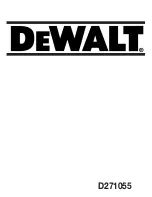
Cheetah 15K.7 SAS Product Manual, Rev. D
29
300GB model
Typical power dissipation under idle conditions in 6Gb operation is 8.71 watts (29.72 BTUs per hour).
To obtain operating power for typical random read operations, refer to the following I/O rate curve (see Figure
4). Locate the typical I/O rate for a drive in your system on the horizontal axis and read the corresp5
volt current, +12 volt current, and total watts on the vertical axis. To calculate BTUs per hour, multiply watts by
3.4123.
Figure 6.
ST3300657SS DC current and power vs. input/output operations per second
7.4
Environmental limits
Temperature and humidity values experienced by the drive must be such that condensation does not occur on
any drive part. Altitude and atmospheric pressure specifications are referenced to a standard day at 58.7°F
(14.8°C). Maximum wet bulb temperature is 82°F (28°C).
7.4.1
Temperature
a. Operating
The maximum allowable continuous or sustained HDA case temperature for the rated Annualized Failure
Rate (AFR) is 122°F (50°C) The maximum allowable HDA case temperature is 60°C. Occasional excur-
sions of HDA case temperatures above 122°F (50°C) or below 41°F (5°C) may occur without impact to the
specified AFR. Continual or sustained operation at HDA case temperatures outside these limits may
degrade AFR.
Provided the HDA case temperatures limits are met, the drive meets all specifications over a 41°F to 131°F
(5°C to 55°C) drive ambient temperature range with a maximum temperature gradient of 86°F (30°C) per
hour. Air flow may be needed in the drive enclosure to keep within this range (see Section 8.3). Operation
at HDA case temperatures outside this range may adversely affect the drives ability to meet specifications.
To confirm that the required cooling for the electronics and HDA case is provided, place the drive in its final
mechanical configuration, perform random write/read operations and measure the HDA case temperature
after it has stabilized.
















































